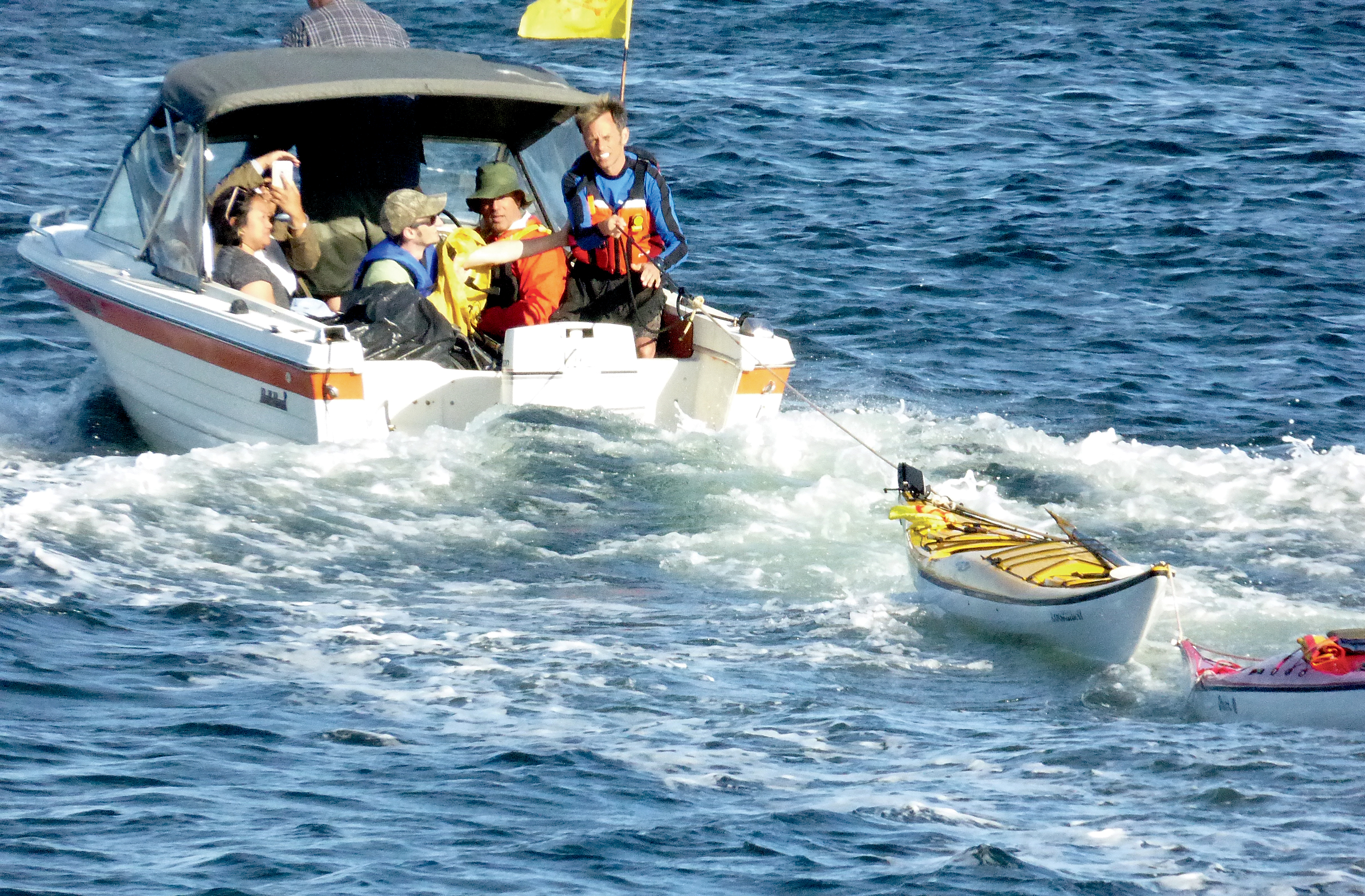PORT TOWNSEND — Protesters intending to confront Royal Dutch Shell’s drill rig as it passed by Port Townsend were unable to get close to the rig, but the effort was still a success, organizers say.
“Everywhere we do this, it gets the community organized and helps people to get to know the issue,” said Rob Lewis, a Bellingham house painter who acted as spokesperson for the impromptu group of protesters who gathered Monday.
“We were well-received by the people in Port Townsend, although we knew we’d never stop the rig,” he added.
About 40 people parked 15 kayaks at the Northwest Maritime Center in Port Townsend after the 400-foot-long Polar Pioneer left Seattle at 6 a.m. Monday.
As it left Seattle, the rig was greeted by about a dozen “kayaktivists” who sought to block its movement to Alaska, where it will be used for Arctic drilling.
The Coast Guard temporarily detained the Seattle protesters because they were violating the safety zone around the massive rig.
They were released after receiving violation notices that carry fines, the Coast Guard said.
In Port Townsend, protesters planned to position the kayaks in front of the rig to force it to either stop or go around the protesters, Lewis said.
Due to the rough waters, the group decided to select the most capable kayakers to participate, towing nine kayaks to the area where the rig was expected to appear, which was on Whidbey Island’s west coast.
The kayakers took to the water at about 6:30 a.m., a half-hour before the rig was expected to appear, but its slow speed and its traveling close to the Whidbey shore delayed its arrival.
Once it became visible to the protesters at about 7:30 a.m., the kayakers already had abandoned any confrontation with the rig because of rough water.
“It was too wavy, and we decided it would be way too dangerous to proceed,” Lewis said.
“It was too intense, and it wouldn’t have been safe to put people out there.”
Right before the rig appeared, Lewis and several other group members drove to Marrowstone Island and met up with the kayakers, taking them and their craft back to Port Townsend by car.
Lewis said the kayakers feel strongly about the issue.
“The Arctic is melting, and the fact that they want to drill up there is confirmation of climate change,” he said.
“I will do whatever I can to stop this situation so I can look my child or my grandchild in the eye and say I tried to make a difference.”
As the kayakers moved toward the rig, about 40 people gathered on the wharf adjacent to the maritime center, holding signs and shouting slogans like “Shell, no!”
Monday’s blockades were the latest protest since the Polar Pioneer arrived in Seattle in May after spending nearly a month in Port Angeles Harbor.
Activists say they are concerned about the risks of an oil spill in the remote Arctic waters and the effects that tapping new oil and gas reserves will have on global warming.
Activists also have chained themselves twice to a support ship in Bellingham, north of Seattle. They have tried to block entrances to the Seattle terminal where the rig was loaded. Several have been arrested.
Officials in Alaska, including the governor, have touted the economic benefits that drilling could bring there and to the Pacific Northwest.
The U.S. Geological Survey estimates Arctic offshore reserves at 26 billion barrels of recoverable oil and 130 trillion cubic feet of natural gas. Shell says developing these reserves could increase domestic oil supplies by more than 1 million barrels a day.
________
Jefferson County Editor Charlie Bermant can be reached at 360-385-2335 or cbermant@peninsuladailynews.com.
The Associated Press contributed to this report.

